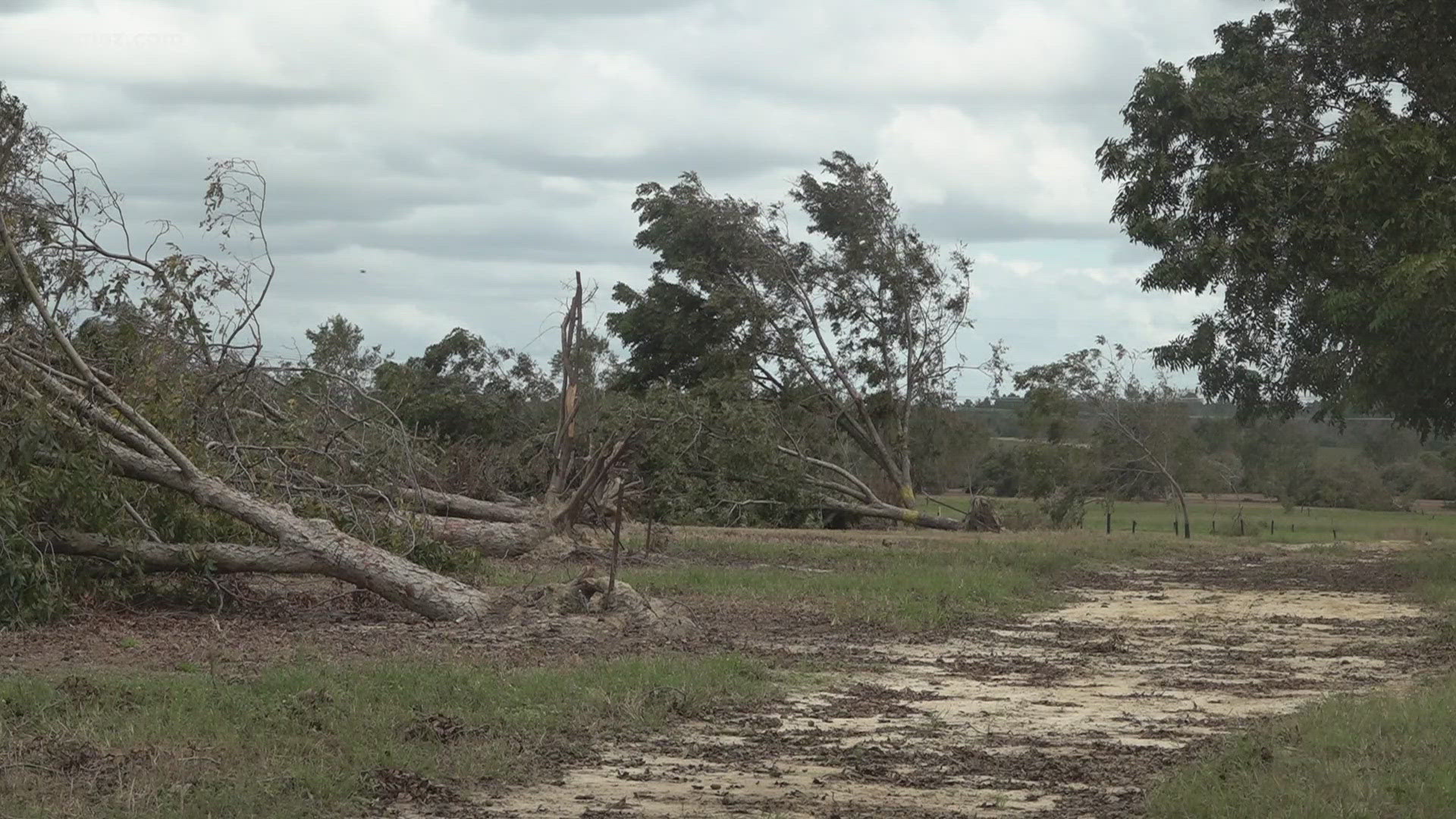UVALDA, Ga. — Georgia pecan farmers are looking for federal help to recover from Hurricane Helene, and some are worried they won't be able to save what's left of their orchards.
Many were expecting to harvest their crops this week. Instead, they're assessing damage and documenting losses.
The U.S. Department of Agriculture says pecan trees are usually first to blow over when a tropical storm passes through.
Arren and Taylor Moses own and operate Moses Pecan farm in Uvalda, Georgia. The couple have been partners in the pecan industry for 10 years.
They say pecan trees are most vulnerable to high wind speeds because of their heavy, canopy-like tops and sensitive roots, adding once they're uprooted, they cant be salvaged.
They say even though they recognized the risks to planting pecan seeds, the crop value was most important.
"We were trying to look at something that wasn't a traditional row crop, a premium product, a higher end product, something that was easier to market, something that was healthy," Arren said.
Arren tells 13WMAZ they lost 80% of their trees due to Helene. They own around 800 acres of farm land.
"I don't know how many acres we'll have if we'll have any acres, if we'll still be in the business," he said.
But after surveying damage to their farm, they said they aren't sure where their business stands. Taylor says this was supposed to be their "on" year.
"Every time we come out here, the magnitude of this devastation just gets bigger and bigger," Taylor said.
The Moses' say because pecan trees take nearly 15 years to grow but they might not be able to prepare their next crop until 2026, after cleanup.
"I think Arren and I both were scared to ask each other if we were gonna go back into pecans at this point but it took us three or four days to bring up the conversation and at this point, I think we are gonna replant and go on," Taylor said.
As for the 20% not uprooted, Arren says the storm likely put stress on those trees but they wont be able to check for another few years because they're still maturing.
"It's possible in 2 to 3 years that these trees may be viable but there's no way to know until we see what the root damage will be long term to them from the storm," Arren said.
Georgia Pecans Growers Association Executive Director Mary Bruorton said this is a major deficit for farmers, adding for many this is what they've dedicated their entire lives to.
Since the aftermath, Bruorton has been in several counties, checking on farmers whose farms were severely damaged.
"I'm here for y'all, if y'all need anything and we're gonna stay strong and we're gonna be fighting for you and if there's anything that I can do, please reach out to me," she said. "That is my job and that is what I love to do, fighting for y'all."
She said USDA and University of Georgia have helped them gather resources but they're pushing for federal funding. She said to support these farmers, there are a few fundraising opportunities online.
Though they haven't totaled up the financial loss, they said they're taking things one day at a time.
Georgia Agriculture Commissioner Tyler Harper visited the Moses' farm to help assess storm damage just days before President Biden traveled to a South Georgia Farm. Both leaders are advocating for recovery relief for farmers across the state.

